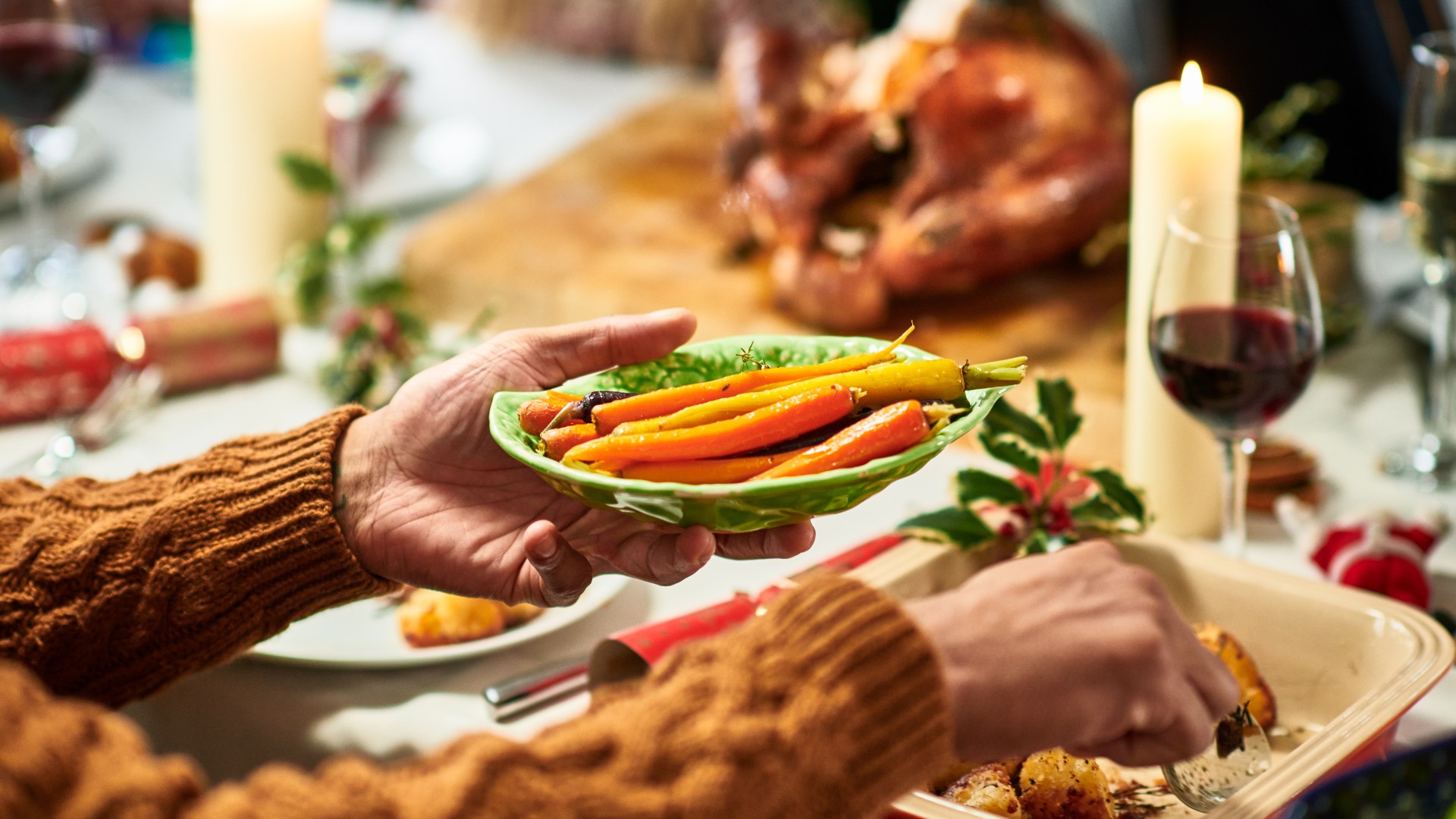5 tips for dealing with grief during the holiday season
Finding your holiday cheer might be more complicated when you're grieving. But it's not impossible.


A free daily email with the biggest news stories of the day – and the best features from TheWeek.com
You are now subscribed
Your newsletter sign-up was successful
Losing a loved one can cause you to look at the holiday season with more hesitancy than excitement. Typically a joyous time, the season might take on a whole new meaning when the traditions are reminders of a person who is no longer present. While the grieving process can be unpredictable, there are a few actions that can make navigating that process against the backdrop of family festivities easier. Here are some tips for handling grief over the holidays.
Make your boundaries clear
Everyone's grief process is different. There may be holiday traditions that are too taxing for you or, on the other hand, potential new traditions you might want to incorporate. "Openly communicate your preferences," Valerie Crabtree, chief of Psychosocial Services at St. Jude Children’s Research Hospital, wrote on Psychology Today. Keep in mind that your family members might have their own ideas about how to spend the holiday, "so an honest dialogue can help ensure everyone’s grief is acknowledged," Crabtree added. Your boundaries might change as you move through processing your grief. If forgo some traditions now, you may change your mind about them down the line.
Have patience and hold space for tough feelings
Grieving can be draining and overwhelming. Sometimes it comes in unpredictable waves, and it can be helpful to give yourself the space to identify and process those feelings. Remember to have patience for yourself and others who are navigating grief this holiday season. "There is power in naming your feelings," psychotherapist Tashia Millstein said, per Vogue. Taking the time to figure out your feelings can help you "be intentional in how you channel those emotions," Milstein added. It can also help you recognize that there is no right or wrong way to feel at any time. "We often have moments of joy during hard times, and it is equally okay to experience sadness and grief during joyous occasions," she noted.
The Week
Escape your echo chamber. Get the facts behind the news, plus analysis from multiple perspectives.

Sign up for The Week's Free Newsletters
From our morning news briefing to a weekly Good News Newsletter, get the best of The Week delivered directly to your inbox.
From our morning news briefing to a weekly Good News Newsletter, get the best of The Week delivered directly to your inbox.
Set a hard deadline for leaving events
If you're feeling pressured to participate in holiday festivities or your social battery starts running low, setting a departure deadline can help alleviate some of that anxiety. The holidays are supposed to be joyous, but they can turn stressful if you stay too long when you're already exhausted. "Say, 'I am going to stay until 9:00, and then I have this reason to leave,'" Megan Devine, psychotherapist and grief advocate, told Healthline. "We can survive stressful things if we know the endpoint."
Embrace the love
While grief is steeped in sadness, at the root of it is love. "You're grieving because you've loved, have been loved, and continue to love," Lisa DeSieno, Bereavement Services director, wrote for the Mayo Clinic Health System. It can be healing for you to embrace the joy of shared memories with other loved ones over the holidays, particularly when your loved ones are experiencing communal grief with you. Taking the time to honor the loved one who passed may help you all reconnect. "Pay attention to whether this warms you or becomes too hot to touch," Desieno advised. "Let your feelings be your guide."
Pay attention to your health
Grief obviously takes an incredible emotional toll, but it can also affect your physical health. You might notice you are feeling fatigued more quickly than usual or have trouble eating or sleeping. You might feel more "susceptible to headaches and other illnesses," DeSieno explained. These symptoms are the byproduct of the grief process, activating the part of the brain responsible for emotions and stress. "Grief can change brain chemicals and hormonal functioning, and your immune system can be compromised," she added. Pay attention to how you are feeling, and consider contacting your healthcare provider. It could be a good idea to procure some additional guidance for navigating the season.
A free daily email with the biggest news stories of the day – and the best features from TheWeek.com
Theara Coleman has worked as a staff writer at The Week since September 2022. She frequently writes about technology, education, literature and general news. She was previously a contributing writer and assistant editor at Honeysuckle Magazine, where she covered racial politics and cannabis industry news.
-
 The Olympic timekeepers keeping the Games on track
The Olympic timekeepers keeping the Games on trackUnder the Radar Swiss watchmaking giant Omega has been at the finish line of every Olympic Games for nearly 100 years
-
 Will increasing tensions with Iran boil over into war?
Will increasing tensions with Iran boil over into war?Today’s Big Question President Donald Trump has recently been threatening the country
-
 Corruption: The spy sheikh and the president
Corruption: The spy sheikh and the presidentFeature Trump is at the center of another scandal
-
 ‘Zero trimester’ influencers believe a healthy pregnancy is a choice
‘Zero trimester’ influencers believe a healthy pregnancy is a choiceThe Explainer Is prepping during the preconception period the answer for hopeful couples?
-
 ‘Longevity fixation syndrome’: the allure of eternal youth
‘Longevity fixation syndrome’: the allure of eternal youthIn The Spotlight Obsession with beating biological clock identified as damaging new addiction
-
 Stopping GLP-1s raises complicated questions for pregnancy
Stopping GLP-1s raises complicated questions for pregnancyThe Explainer Stopping the medication could be risky during pregnancy, but there is more to the story to be uncovered
-
 RFK Jr. sets his sights on linking antidepressants to mass violence
RFK Jr. sets his sights on linking antidepressants to mass violenceThe Explainer The health secretary’s crusade to Make America Healthy Again has vital mental health medications on the agenda
-
 Nitazene is quietly increasing opioid deaths
Nitazene is quietly increasing opioid deathsThe explainer The drug is usually consumed accidentally
-
 The plant-based portfolio diet invests in your heart’s health
The plant-based portfolio diet invests in your heart’s healthThe Explainer Its guidelines are flexible and vegan-friendly
-
 Tips for surviving loneliness during the holiday season — with or without people
Tips for surviving loneliness during the holiday season — with or without peoplethe week recommends Solitude is different from loneliness
-
 More women are using more testosterone despite limited research
More women are using more testosterone despite limited researchThe explainer There is no FDA-approved testosterone product for women
